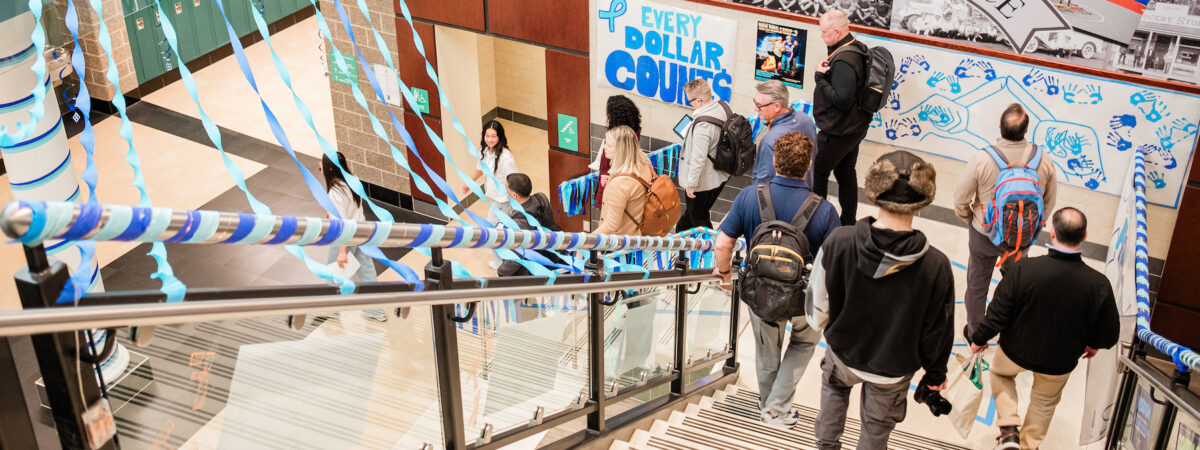
Western Pennsylvania is known for its long history of hard work and regional pride. From its critical role as “Steel City” which helped to shape the industrialization of the United States to its internationally recognized philanthropic and education institutions that bolster its reputation as a thought leader, the Pittsburgh area is filled with dedicated leaders who are willing to roll up their sleeves and challenge the status quo. Perhaps, what most sets Pittsburgh apart is its deeply collaborative spirit. And in no sector is this attitude more apparent than in K-12 education.
The League of Innovative Schools bears this out, boasting 13 member districts in the Western Pennsylvania area—more than any other region in the network. This regional collaboration was on full display at the League of Innovative Schools Spring 2025 Convening, which took place from March 24-27, 2025. Over four full days of hands-on learning, more than 350 superintendents, district leaders, researchers, edtech developers, and partners gathered in Pittsburgh to immerse themselves in the culture of collaboration that has helped to transform education across the area.
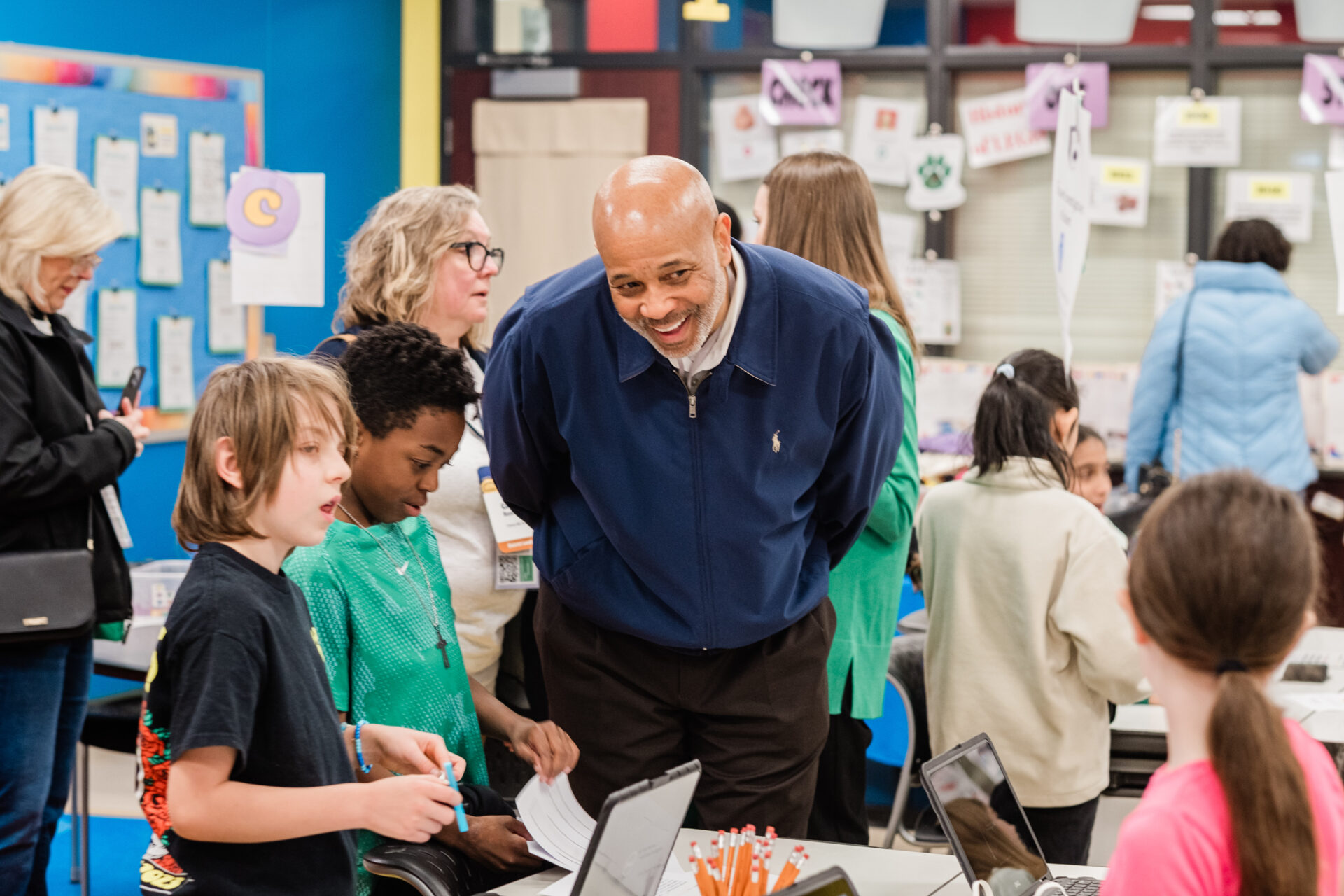
Through school visits, convening attendees can observe cutting-edge approaches in action and speak directly with teachers and students about their experiences.
For attendees, a highlight at all League biannual convenings are the school visits, which give leaders from across the country the opportunity to experience what’s happening in different schools, identify innovative approaches, and glean insights that they might adapt and apply in their own districts. This type of observational learning—the opportunity to go into schools and identify promising models for customization and replication elsewhere—is where the transformative power of the League takes root.
“We could literally transform the system if there was a way for all superintendents to share experiences like we do in the League,” one attendee shared.
Across the 13 school districts that hosted the convening, each of which has different student demographics, challenges, and opportunities, a binding truth emerged: ideas-sharing sparks innovation.
“We are all facing the same challenges, the work is aligned, and there are creative ideas that were shared that I am able to bring back to the district,” one attendee reflected.
Many districts across Western Pennsylvania have adopted clear and holistic approaches for student-directed career pathways that start at the elementary level. The RIASEC framework (Realistic, Investigative, Artistic, Social, Enterprising, and Conventional), for example, is utilized in multiple districts, including Duquesne CIty School District, Avonworth School District, Elizabeth Forward School District, River Valley School District, and South Fayette School District, among others—an approach that was first observed by Pittsburgh-area leaders in fellow League member district Cajon Valley Union Elementary School District and has since been customized and replicated in their own districts. After observing this approach at Avonworth and other districts, one attendee spoke to their intended plans to deepen their own district’s approach: “[I want to integrate] RIASEC into our career based coursework at all levels and through multiple means at the high school level [including] course planner, graduation plans, [and more].”
Attendees who visited Baldwin-Whitehall and South Allegheny School Districts observed a hands-on approach to learning that helps students to explore tangible careers post-graduation. At Baldwin-Whitehall’s student-run coffee shop, the “Baldwin Bean,” students learn how to operate a small business; at their innovation hub, students can create products and sell them. At South Allegheny, where 70% of students enter the workforce immediately after graduation, workforce development programs have been critical to ensuring students’ postsecondary success. South Allegheny launched a high school aviation course with a flight simulator, exposing students to diverse careers in aviation beyond piloting. The district also transformed its library into a dynamic media center, added a recording studio, and built a student-led broadcast program that produces live content for school and community events.
Similarly, Hampton Township School District’s “Portrait of a Talbot” offers a model for what a fully integrated Portrait of a Graduate can look like when it becomes embedded into the culture of a district and executed across grade levels. One attendee shared that they plan to learn from and help build upon this model alongside Hampton Township by applying for a Learning Neighbor Grant: “I applied to work with Hampton School District on Portrait of a (Talbot). I loved how the students lived the pillars of the portrait!”
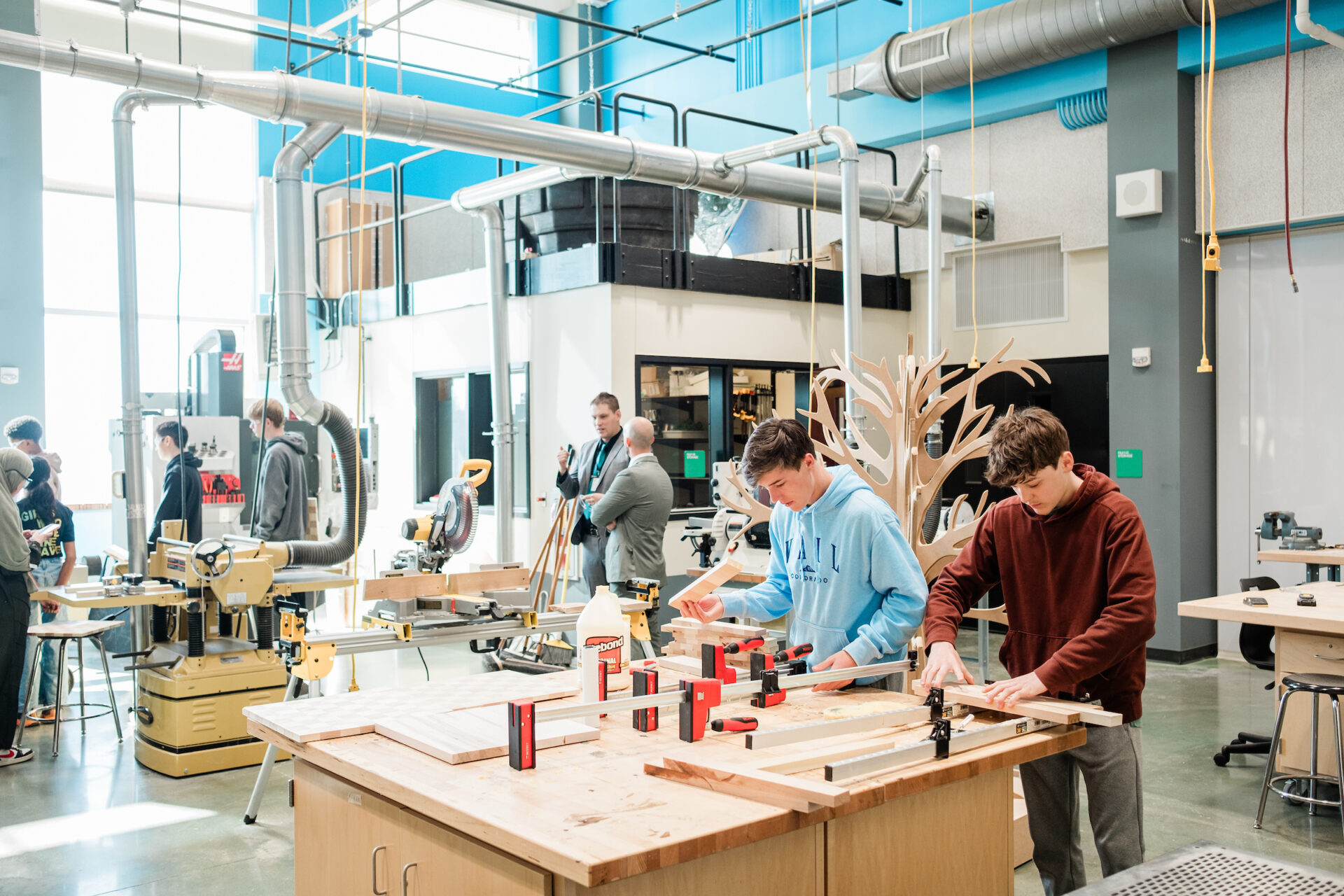
At districts across Western Pennsylvania, students have opportunities to engage in hands-on learning that may lead to future careers.
Through inclusive, data-informed instruction, authentic learning experiences, and a focus on fostering a sense of belonging, attendees who visited the Fox Chapel Area School District observed its commitment to cultivating a supportive environment where students can flourish academically, socially, and emotionally. After visiting the wellness space at the high school, which provides a safe space for students to decompress and receive counseling support if needed, one attendee noted that they plan to explore a similar approach: “We are investigating ways to incorporate a student-directed wellness lab into our buildings.”
During their joint school visit pathway, both Shaler Area and Duquesne City School Districts demonstrated how they are creating student-centered learning experiences and fostering positive school cultures by centering student voice, choice, and agency. Shaler Area’s “School-Wide Positive Behavior Supports,” for example, are incorporated at all grade levels, promoting early learning and emotional growth for younger students and increased student engagement for older ones. At Duquesne City, attendees saw personalized learning in action through the seamless integration of technology, a strong emphasis on career readiness through career exploration opportunities, like the Lilliput storefront playhouses, and hands-on programs like drone soccer, LEGO robotics, and a vibrant makerspace.
Quaker Valley School District’s experiential learning program stuck out to one attendee for the way it not only equips students with work-based learning, but also promotes student voice and choice: “Seeing the intentionality of giving students a program that allows them to choose…learning pathways and engage in something they’re interested in is so powerful.”
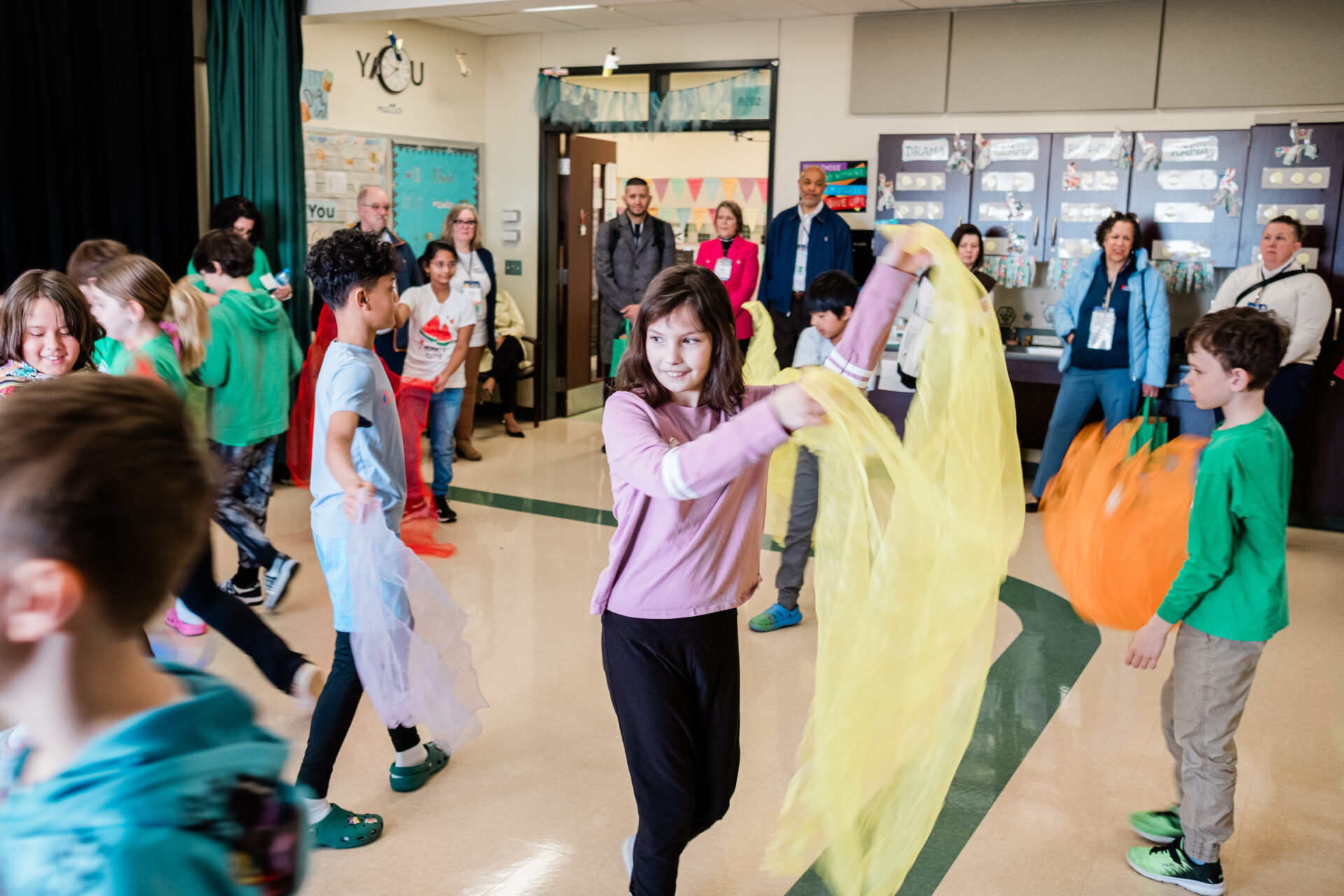
By fostering inclusive spaces that promote whole child development, schools across the Pittsburgh elevate the importance of student voice and engagement to promote powerful learning.
At the California Area and Elizabeth Forward School Districts, learners explore how emerging technologies, such as artificial intelligence (AI), robotics, sensors, and a technology ecosystem, can converge with conservation. Attendees visiting California Area tried their hand at artificially inseminating a bee, and they also spoke with the student leaders who are a part of the district’s apiary club to understand how they are learning about a bee’s full life cycle and contributions to the environment. Elizabeth Forward’s students are similarly engaging in STEAM learning that combines technology with hands-on experiences. Students learning to play the ukulele, for example, demonstrate mastery of a particular chord through digital badging, enabling them to receive individualized support and learn at their own pace.
South Fayette School District’s visit highlighted the abundance of hands-on learning opportunities available to students in the STEAM space, including a cybersecurity pathway, robust esports program, hydroponics “Freight Farm,” and “Fly Like a Girl” (FLAG) Drone Club. Attendees observed multiple approaches for implementing these offerings in their own districts. “We are going to try to do our own type of ‘freight farm’ as part of our commitment to environmental education and sustainability,” one attendee shared. “[We’re working] on establishing a partnership with the airport in our area to establish a drone club and so that students can work on pursuing pilot licenses,” another attendee reflected.
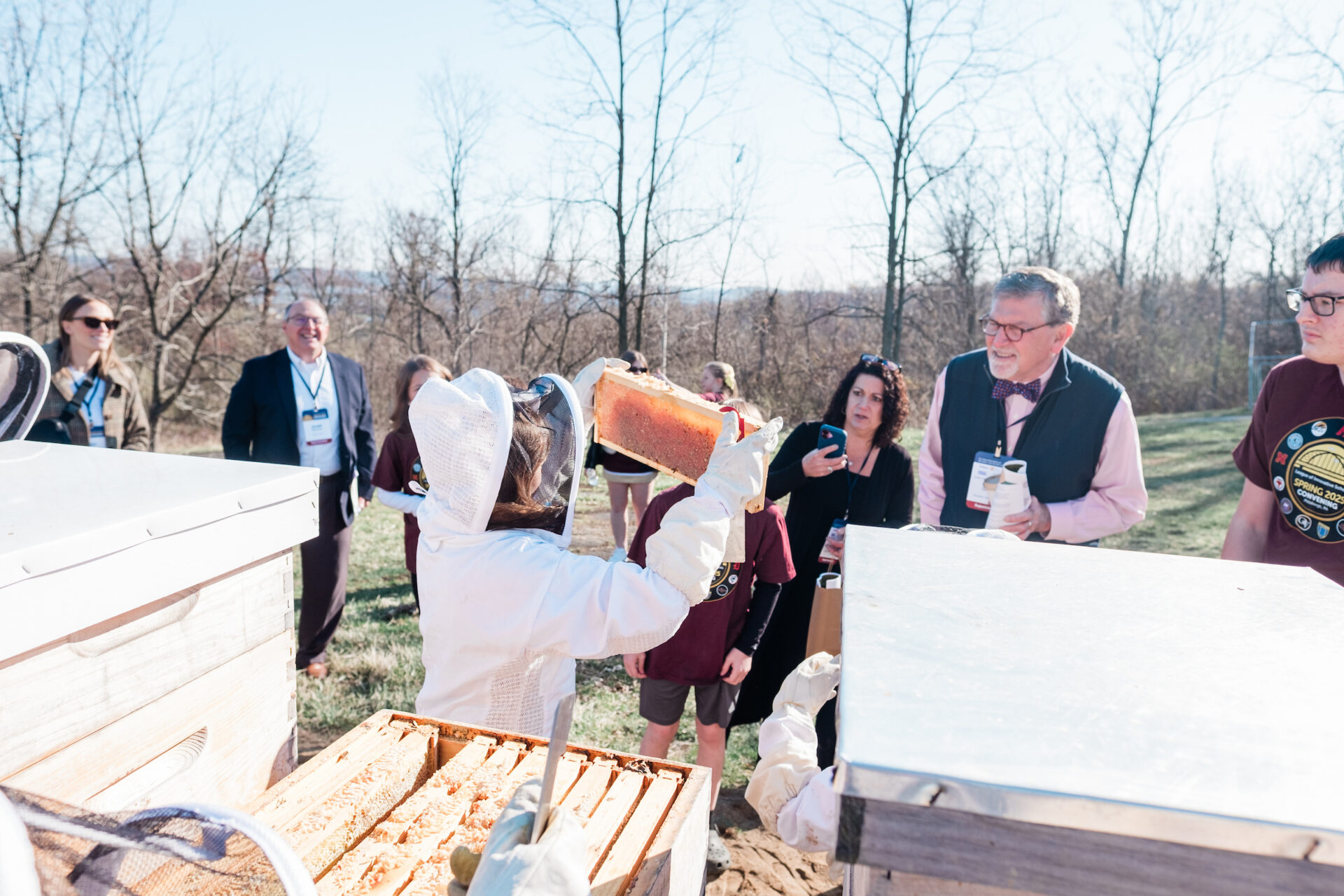
Students get outside to learn from the natural environment, while also leveraging technology tools to accelerate their learning.
Another key aspect of Western Pennsylvania’s approach to innovative teaching and learning can be seen through its industry and community partnerships. Attendees had the opportunity to visit three industry partners—the Children’s Museum of Pittsburgh, Carnegie Mellon University’s Entertainment Technology Center, and the Community College of Allegheny County—to learn how strong partnerships across the region are opening doors to meaningful learning experiences for students. Many who weren’t able to attend the industry visits were able to witness the partnerships through select school visits.
The River Valley School District’s partnership with the Community College of Allegheny County helps ensure that high school students engage in high-quality, relevant coursework while earning college credits. The district’s STEAM Academy further demonstrates its commitment to providing learning experiences that help them explore potential careers in areas including automation engineering, biomedical technology, electrical occupations, and more. “The academies at River Valley sparked many ‘aha’ moments [for me],” one attendee shared. “As we build out our four year instructional technology plan, I will be embedding our Portrait of a Graduate competencies into the plan to [take] a multipronged approach.”
Visitors to Northgate School District kicked off their visit at an old hospital that the district has since repurposed into a flexible learning space. Here, students explore STEAM topics like robotics in close proximity to technology startups who also have workspace in the building. “I am even more intrigued by the community partnership with the hospital,” one attendee shared. “Seeing it and gaining a deeper understanding has been very exciting and thought-provoking.”
Perhaps one of the region’s most critical education partners, however, is the Grable Foundation. Gregg Behr, the foundation’s executive director, delivered opening remarks at the convening to ground attendees in the special regional collaboration that exists across Western Pennsylvania and the Grable Foundation’s approach toward helping to foster it—namely, through “small bets.” These have primarily taken the form of Moonshot Grants, which districts across the area have utilized to bring small but impactful innovations to their schools. This mindset struck one attendee as innovative, particularly after visiting schools to observe the grants in action: “We can do great things without a lot of resources. Small bets can make a difference,” one attendee reflected.
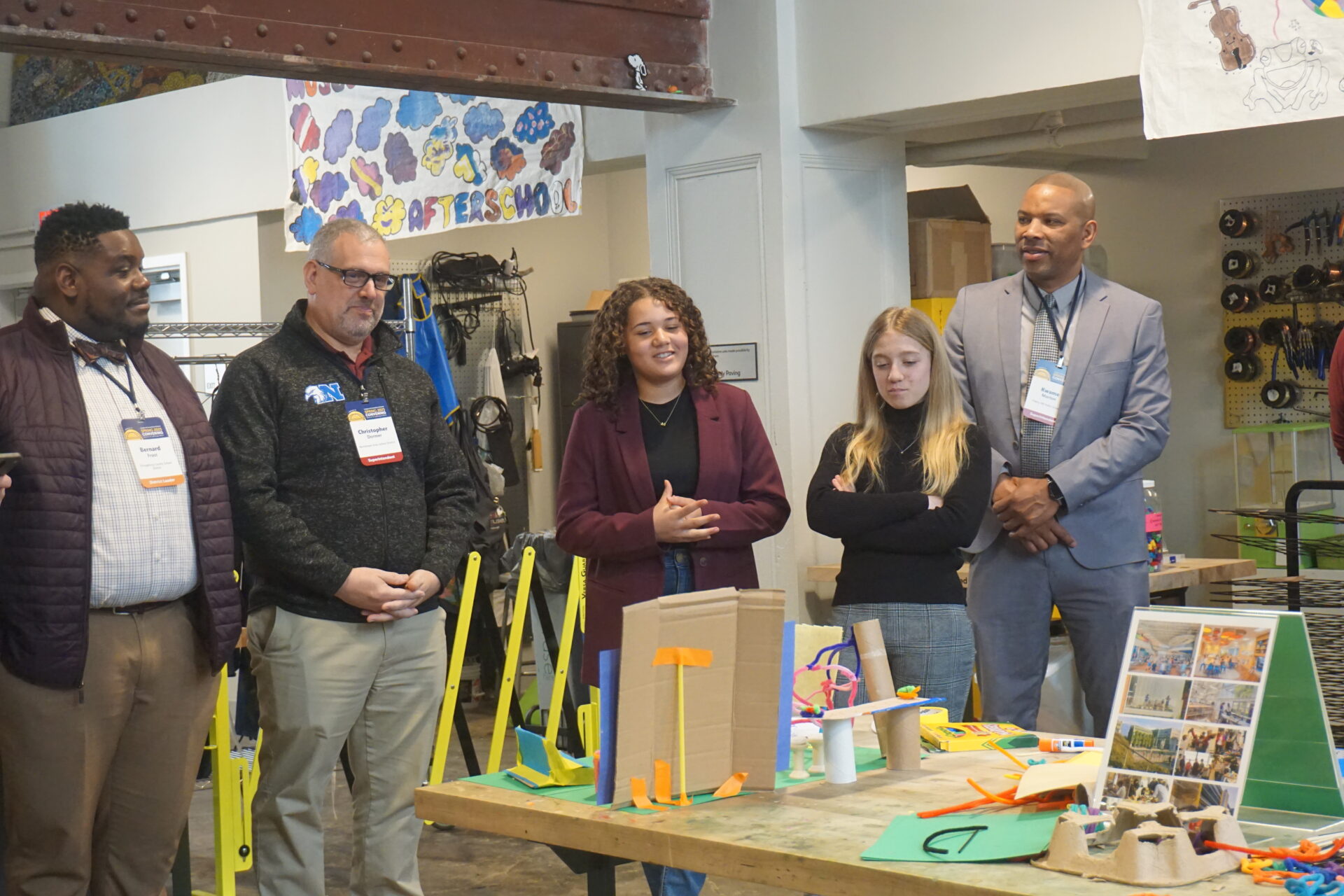
Strong community and industry partnerships are key to fostering meaningful hands-on learning experiences to students beyond school walls.
Are you interested in diving deeper into the work of the League of Innovative Schools?